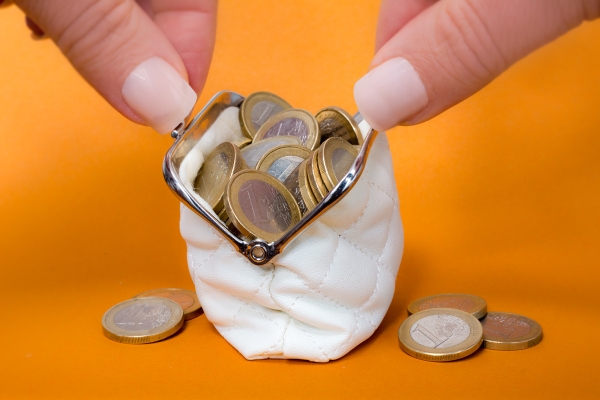
A seafarer from an early age, Antoine Capstick started fishing in the English Channel when he was 14 years old and later discovered yachting in his mid-20s. Working on charter yachts, specifically Mangustas, he spent a lot of time trying to work out how to maximise the tips that guests left behind.
Over the years, with this question still unanswered, he decided to interview the best of the best in the world of tips to see what they had to say. Their advice is contained in his new book TIPS, which is out now on Amazon. Antoine gives us a taste of what to expect.
Why did you write this book and who is it for?
There are two main reasons. The first is that many of my yachting friends were fed up with other people complaining about tips, so now I refer them to my book to neutralise these complainers! Yacht crew can benefit from the testimony of some very compelling captains, chief stewardesses and chefs about how they work to maximise yacht charter tips. I want this book to be in the crew mess of every charter yacht.
The second is for the American audience. In yachting, tips decorate an already stellar salary, but in the US, service sector workers typically don’t get a salary from their employers so they rely on tips to live. Some also don’t receive specific service training, but if they read this book, they’ll quickly recoup the cost by increasing their tips.
Fundamentally, I wrote this book to help people boost their incomes, there’s something here for everyone.
Is there a science or a correlation between service levels and tips received?
The masters of service describe very well how they do it, explaining their techniques as service providers as well as their expectations as diners in restaurants. There are common themes on both sides of the fence.
 Anticipation is an important one; the level of service provided has to align with guest expectations. Things go sideways when what the crew believe to be good service does not correspond with the guest experience. In such cases, all the contributors I spoke to leaned towards an examination of the level of service they provided before blaming the guest when tips are low.
Anticipation is an important one; the level of service provided has to align with guest expectations. Things go sideways when what the crew believe to be good service does not correspond with the guest experience. In such cases, all the contributors I spoke to leaned towards an examination of the level of service they provided before blaming the guest when tips are low.
Are there certain things the reader can put into practice straight away?
Yes. The book covers team building and motivation and offers lots of practical advice for anyone in the service sector to help them increase their tips revenue. Having said that, if there’s anyone out there already hitting 30% every time, please get in touch with me, I’d love to interview you!
What do you think people respond to most in wanting to leave a good tip?
They want to feel important. They like to see a smile. They want their needs to be anticipated. When people sit down to eat they don’t want to wait ages for a drink and nibbles. Everyone likes house bread. If you want to earn more tips, start by baking your own bread.
Does nationality make a difference when tipping?
Yes it does, and in the book I’ve included some interesting testimonies about how to get the most out of low tipping cultures.
Is excellent service on a superyacht rewarded more highly than the same service ashore?
In my research, restaurant waiters did not report the same percentage or quantity of tips that yacht crew are accustomed to. The reason for this was alluded to in one interview, where it was suggested that due to the time it takes to disembark after a charter, it might be awkward for some time if the crew’s tip expectations were not met. I do think there’s more pressure for clients to leave a big tip on a yacht than in a restaurant.
Is it always right to expect a tip?
It’s fair to expect a tip when you work in a tipping industry and you feel you’ve surpassed the guests’ expectations. On a charter yacht, where the working hours are long, it would be unusual for the crew to have no expectations of a tip. Again, if the tip is lower than you expected, perhaps look closely at the service provided rather than judging the guest.
 Should charter brokers specify a tipping percentage to charterers in advance?
Should charter brokers specify a tipping percentage to charterers in advance?
There is a school of thought that says by doing so, it puts an artificial ceiling on the gratuity. There are crews out there who wish brokers wouldn’t do so because the service and experience they provide is so stellar that left unprompted, charterers routinely leave tips of 25-30%.
Are there common themes in the testimonials you received for the book?
Yes. Almost all the contributors said that they don’t expect a gratuity, although they do work to achieve them. Broadly speaking, they extrapolate what prompts clients to tip in a restaurant and incorporate this into the service they provide on board, and this method seems to serve them well.
Onboard service is much more complicated than restaurant service, especially managing the mood over a number of days or weeks. How to recover the mood when things go wrong is a topic that comes up often. The most accomplished tip earners treat each charter individually, they don’t have set piece events that they repeat week after week, and they work together to monitor guest behaviour in ways that would put the KGB to shame!
A couple of interesting snippets snuck into the pages of the book too. One came from Sylvain, a waiter who started his career in Paris and now works on the French Riviera. He describes insider techniques for overcharging customers, which is something we all want to avoid!
If there is one thing to take from this book, what is it?
There are two things. Firstly, earning good tips is a mindset as much as a method. Secondly, always check your bill in a restaurant!
TIPS by Antoine Capstick is available to buy now on Amazon.

Post your comment
You cannot post comments until you have logged in.
Login to post a commentComments
No one has commented on this page yet.
RSS feed for comments on this page | RSS feed for all comments